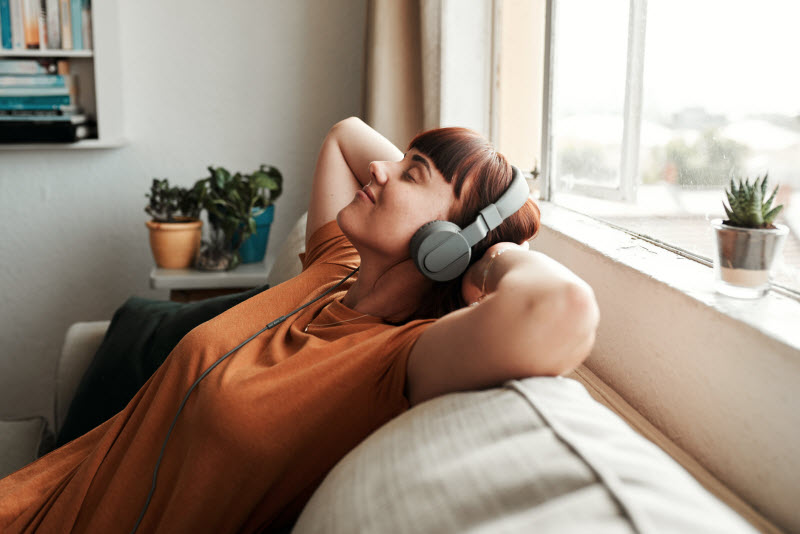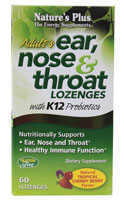[vc_row][vc_column][vc_column_text]Imagine a ringing in your ears that never goes away. For millions of people, this is a daily reality.
Tinnitus is a condition in which you experience ongoing ringing or other noises in one or both ears. Exposure to loud noise or being diagnosed with specific medical conditions raises your risk of tinnitus.

About 25 million Americans experience some form of tinnitus in a given year,
according to the Centers for Disease Control and Prevention. In addition, the prevalence and severity of tinnitus increase with age.
Treating tinnitus effectively can been challenging, says
Lori Zitelli, a member of the American Academy of Audiology and the managing audiologist at the University of Pittsburgh Medical Center (UPMC) Department of Otolaryngology in Pittsburgh.
"Part of the reason why tinnitus is so difficult to treat is that we don’t fully understand the mechanisms that lead to its generation," Zitelli says.
However, a new treatment based on a cellphone app is promising relief to those with chronic ringing in the ears.
What causes tinnitus
As Zitelli notes, the precise cause of tinnitus remains unknown. It often appears to be the result of exposure to loud sounds, particularly over an extended period of time.
Many theories suggest damage to the hearing system leads to a lack of input to the parts of the brain that process sound.
"In that case, it is believed that the brain tries to compensate for the lack of input by creating its own sound," Zitelli says.
Other theories suggest that other specific parts of the brain might be responsible for the condition.
While exposure to loud noise is thought to be a major trigger for tinnitus, many people with ear-related medical issues -- including hearing loss, Meniere’s disease, otosclerosis and acoustic neuroma -- experience tinnitus.
However, “for the majority of people we see with tinnitus, it is not linked to a medical condition that requires treatment," Zitelli says.
Instead, it is believed to be a benign consequence of damage to the hearing system and/or brain pathways, she adds.
A breakthrough in tinnitus treatment?
Tinnitus is just as difficult to treat as it is to diagnose. “It has become clear that tinnitus is not a problem with one solution,” Zitelli says.
Recently, researchers at the University of Auckland revealed that a clinical trial using a tinnitus therapy based on a mobile phone app helped people to better cope with their tinnitus.
The researchers say the app is personalized in a way that helps retrain an individual’s brain to ignore the sounds associated with tinnitus.
On average, a group of people with tinnitus who used the app reported significant improvements in their condition. In fact,
researchers say 65% of those using the app experienced improvement.
By contrast, the group that used a more traditional “white noise” app to mask tinnitus did not experience such improvement.
The researchers hope the n
ew treatment will earn approval from the U.S. Food and Drug Administration and be available for use within six months.
Other ways to treat tinnitus
Other treatments also have helped some people mitigate their tinnitus. For example, some patients report relief by using “white noise” treatments, such as running a fan in a room.
Zitelli acknowledges that using white noise to treat tinnitus might seem “counterintuitive” for a condition that often is caused by exposure to loud sounds.
But she notes that using white noise, nature sounds and music to mask tinnitus can be “significantly helpful.”
“Most people with bothersome tinnitus find that using another, low-level sound in their environment reduces their awareness of the tinnitus,” she says. “This can be particularly important in cases when sleep is significantly disrupted by tinnitus.”
In addition to the phone app, you can use a tabletop noise device, headphones, on-ear devices or another option to produce the type of sound that helps most people in this situation, Zitelli says.
“Tinnitus sufferers should discuss sound therapy options with their audiologist,” she says. “Apps like the one referenced in this study will be another tool in a tinnitus-sufferer’s toolbelt.”
Education and counseling about tinnitus also help patients develop coping strategies to improve their quality of life, Zitelli says.
“Cognitive behavioral therapy has been shown to reduce annoyance and distress associated with tinnitus,” she says.
Preventing tinnitus
One of the best ways to prevent tinnitus is to protect the structures of your inner ears, especially from exposure to loud sounds.
The impact of sound on hearing – and potentially, tinnitus – depends on how loud the sound is and how long you listened to the sound. People who could be at higher risk for hearing loss and tinnitus include those who:
- Play music
- Operate motorized vehicles, such as motorcycles and four-wheelers
- Use power tools
- Shoot firearms
- Operate heavy machinery
- Pilot aircrafts
“Everyone taking part in these activities should wear hearing protection when it is appropriate,” Zitelli says.
Additionally, certain medications can also damage the structures in your inner ears. If you’re concerned about this, ask your prescribing doctor if the medication you’re on is typically linked to hearing loss or tinnitus, Zitelli says.
Finally, if you experience tinnitus, Zitelli recommends consulting with an audiologist. To find an audiologist who specializes in the evaluation and management of tinnitus, go to the American Academy of Audiology website and use the “
Find an Audiologist” webpage.
†These statements have not been approved by the Food and Drug Administration. These products are not intended to diagnose, treat, cure or prevent disease.
[/vc_column_text][/vc_column][/vc_row][vc_row][vc_column][vc_text_separator title="Featured Products" border_width="2"][vc_row_inner equal_height="yes" content_placement="middle" gap="35"][vc_column_inner width="1/3"][vc_single_image image="163062" img_size="full" alignment="center" onclick="custom_link" img_link_target="_blank" css=".vc_custom_1666702604409{padding-right: 7% !important;padding-left: 7% !important;}" link="https://www.vitacost.com/marie-originals-healthy-ears"][/vc_column_inner][vc_column_inner width="1/3"][vc_single_image image="163061" img_size="full" alignment="center" onclick="custom_link" img_link_target="_blank" css=".vc_custom_1666702627612{padding-right: 7% !important;padding-left: 7% !important;}" link="https://www.vitacost.com/natural-care-ringstop-ear-drops"][/vc_column_inner][vc_column_inner width="1/3"][vc_single_image image="163063" img_size="full" alignment="center" onclick="custom_link" img_link_target="_blank" css=".vc_custom_1666702646060{padding-right: 7% !important;padding-left: 7% !important;}" link="https://www.vitacost.com/clear-products-clear-tinnitus"][/vc_column_inner][/vc_row_inner][/vc_column][/vc_row]
 About 25 million Americans experience some form of tinnitus in a given year, according to the Centers for Disease Control and Prevention. In addition, the prevalence and severity of tinnitus increase with age.
Treating tinnitus effectively can been challenging, says Lori Zitelli, a member of the American Academy of Audiology and the managing audiologist at the University of Pittsburgh Medical Center (UPMC) Department of Otolaryngology in Pittsburgh.
"Part of the reason why tinnitus is so difficult to treat is that we don’t fully understand the mechanisms that lead to its generation," Zitelli says.
However, a new treatment based on a cellphone app is promising relief to those with chronic ringing in the ears.
About 25 million Americans experience some form of tinnitus in a given year, according to the Centers for Disease Control and Prevention. In addition, the prevalence and severity of tinnitus increase with age.
Treating tinnitus effectively can been challenging, says Lori Zitelli, a member of the American Academy of Audiology and the managing audiologist at the University of Pittsburgh Medical Center (UPMC) Department of Otolaryngology in Pittsburgh.
"Part of the reason why tinnitus is so difficult to treat is that we don’t fully understand the mechanisms that lead to its generation," Zitelli says.
However, a new treatment based on a cellphone app is promising relief to those with chronic ringing in the ears.



